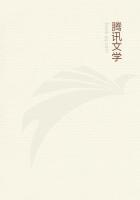The most comical part of the business is that Herr Dühring, in order to prove the non-existence of God from the idea of being, uses the ontological proof for the existence of God. This runs: when we think of God, we conceive him as the sum total of all perfections. But the sum total of all perfections includes above all existence, since. a non-existent being is necessarily imperfect. We must therefore include existence among the perfections of God. Hence God must exist. Herr Dühring reasons in exactly the same way: when we think of being , we conceive it as one idea. Whatever is comprised in one idea is a unity.
Being would not correspond to the idea of being if it were not a unity.
Consequently it must be a unity. Consequently there is no God, and so on.
When we speak of being , and purely of being, unity can only consist in that all the objects to which we are referring -- are , exist. They are comprised in the unity of this being, and in no other unity, and the general dictum that they all are not only cannot give them any additional qualities, whether common or not, but provisionally excludes all such qualities from consideration. For as soon as we depart even a millimetre from the ****** basic fact that being is common to all these things, the differences between these things begin to emerge --and whether these differences consist in the circumstance that some are white and others black, that some are animate and others inanimate, that some may be of this world and others of the world beyond, cannot be decided by us from the fact that mere existence is in equal manner ascribed to them all.
The unity of the world does not consist in its being, although its being is a precondition of its unity, as it must certainly first be before it can be one. Being, indeed, is always an open question beyond the point where our sphere of observation ends. The real unity of the world consists in its materiality, and this is proved not by a few juggled phrases, but by a long and wearisome development of philosophy and natural science.
To return to the text. The being which Herr Dühring is telling us about is "not that pure, self-equal being which lacks all special determinants, and in fact represents only the counterpart of the idea of nothing or of the absence of idea" {D. Ph. 22}.
But we shall see very soon that Herr Dühring's universe really starts with a being which lacks all inner differentiation, all motion and change, and is therefore in fact only a counterpart of the idea of nothing, and therefore really nothing. Only out of this being-nothing develops the present differentiated, changing state of the universe, which represents a development, a becoming; and it is only after we have grasped this that we are able, even within this perpetual change, to "maintain the conception of universal being in a self-equal state"{D. Ph. 23}.
We have now, therefore, the idea of being on a higher plane, where it includes within itself both inertness and change, being and becoming. Having reached this point, we find that "genus and species, or the general and the particular, are the ******st means of differentiation, without which the constitution of things cannot be understood" {24}.
But these are means of differentiation of qualities; and after these have been dealt with, we proceed:
"in opposition to genus stands the concept of magnitude, as of a homogeneity in which no further differences of species exist" {26};and so from quality we pass to quantity , and this is always " measurable " {26}.
Let us now compare this "sharp division of the general effect-schemata"{D.C. 6} and its "really critical standpoint" {D. Ph. 404} with the crudities, wild ravings and delirious fantasies of a Hegel. We find that Hegel's logic starts from being -- as with Herr Dühring; that being turns out to be nothing , just as with Herr Dühring; that from this being-nothing there is a transition to becoming the result of which is determinate being [Dasein], i.e., a higher, fuller form of being [Sein]
-- just the same as with Herr Dühring. Determinate being leads on to quality , and quality on to quantity -- just the same as with Herr Dühring. And so that no essential feature may be missing, Herr Dühring tells us on another occasion:
"From the realm of non-sensation a transition is made to that of sensation, in spite of all quantitative gradations, only through a qualitative leap , of which we can say that it is infinitely different from the mere gradation of one and the same property" {142}.
This is precisely the Hegelian nodal dine of measure relations, in which, at certain definite nodal points, the purely quantitative increase or decrease gives rise to a qualitative leap; for example, in the case of heated or cooled water, where boiling-point and freezing-point are the nodes at which -- under normal pressure -- the leap to a new state of aggregation takes place, and where consequently quantity is transformed into quality.
Our investigation has likewise tried to reach down to the roots, and it finds the roots of the deep-rooted basic schemata of Herr Dühring to be -- the "delirious fantasies" of a Hegel, the categories of Hegelian Logic , Part I, the Doctrine of Being, in strictly old-Hegelian "succession"and with hardly any attempt to cloak the plagiarism!
And not content with pilfering from his worst-slandered predecessor the latter's whole scheme of being, Herr Dühring, after himself giving the above-quoted example of the leaplike change from quantity into quality, says of Marx without the slightest perturbation:
"How ridiculous, for example, is the reference" (made by Marx) "to the Hegelian confused , hazy notion that quantity is transformed into quality !" {D. K. G. 498}.
Confused, hazy notion! Who has been transformed here? And who is ridiculous here, Herr Dühring?














